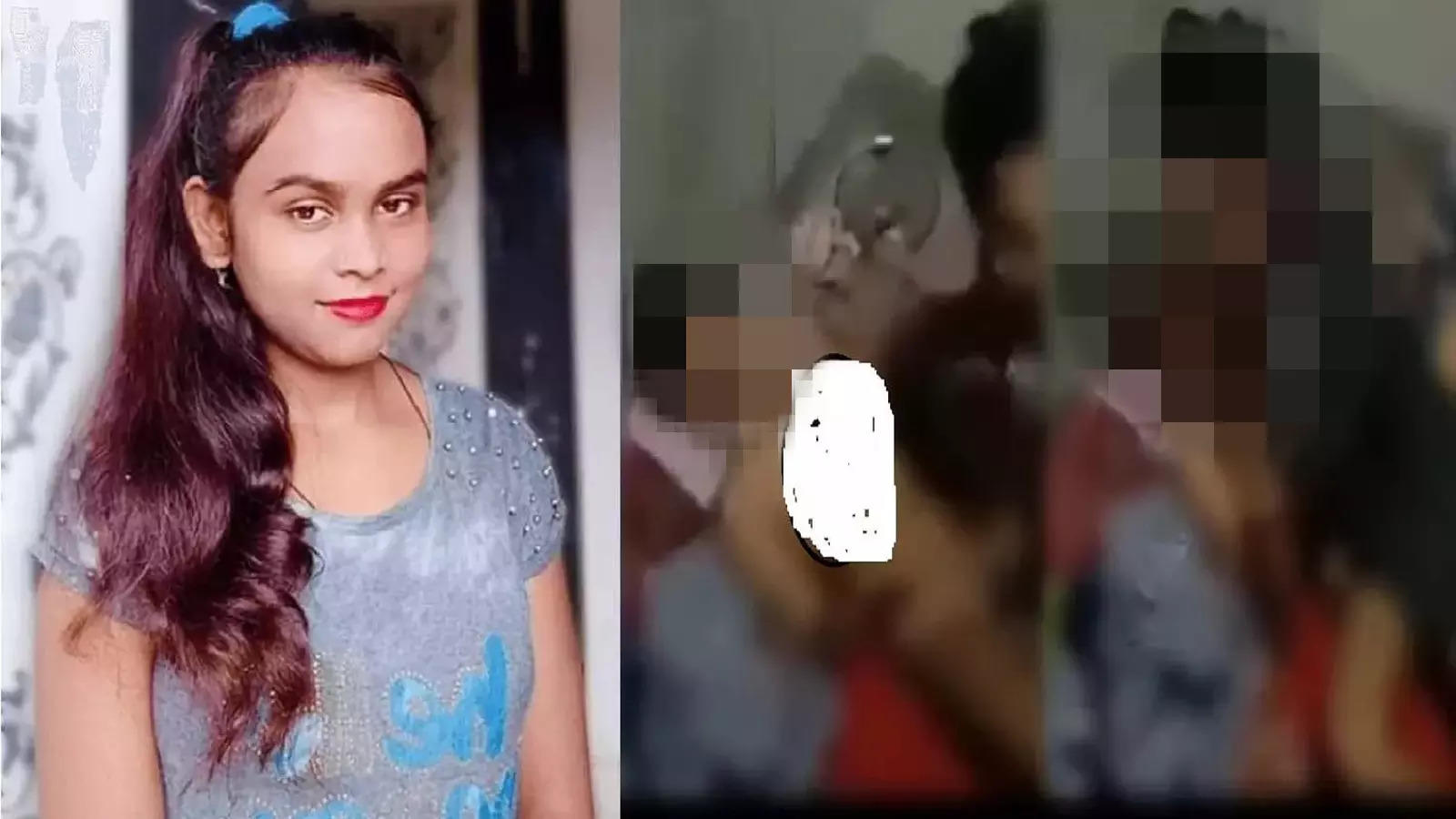Is the digital realm now a breeding ground for privacy violations, where personal moments are ruthlessly exploited for public consumption? The proliferation of "viral MMS" scandals across India, and beyond, undeniably points to a disturbing trend: the erosion of individual privacy in the age of instant information and unchecked online sharing.
The relentless spread of multimedia messages, often without consent, has created a landscape fraught with legal and ethical complexities. Celebrities, influencers, and everyday individuals have all found themselves ensnared in the crosshairs of these digital intrusions. These incidents not only inflict significant emotional distress on the victims but also raise fundamental questions about the need for robust legal frameworks to protect personal data in the digital era.
The term "viral MMS" generally refers to multimedia content, including videos, images, or audio files, that swiftly spreads across various messaging platforms like WhatsApp and other social media networks. The defining characteristic of these incidents is often the lack of consent from the individuals involved, highlighting a blatant disregard for privacy.
One of the most recent cases that has gripped national attention involves alleged leaked videos of students at Chandigarh University. Massive protests erupted on the campus, leading to its temporary closure, as reports surfaced that a female student had purportedly recorded objectionable videos of her hostel mates and shared them. The police have apprehended several individuals in connection with the incident, underscoring the seriousness of the situation and the legal consequences for those involved.
The impact of these "viral MMS" scandals extends beyond the individuals directly affected. They trigger a much wider societal debate on crucial aspects of online privacy, the ethics of content sharing, and the need for better protections against cyberstalking, harassment, and revenge porn. The incidents act as a stark reminder of how vulnerable individuals are in the face of malicious actors who exploit digital platforms for their own purposes.
The legal repercussions of such actions are significant. In India, sharing explicit content without consent can lead to severe penalties, including imprisonment and hefty fines. The Information Technology Act, along with various other legal provisions, attempts to address these issues. However, the rapid evolution of digital technologies and the methods employed by offenders often outpace the law, thus emphasizing the urgent need for stronger, more effective legislation and enforcement mechanisms.
Beyond the legal domain, these incidents also ignite crucial discussions about consent, ethics, and the responsibility of social media platforms. Victims often face intense public scrutiny, online shaming, and mental health issues due to the pervasive nature of these leaks. The debate demands that content creators, media outlets, and online platforms shoulder a greater responsibility for safeguarding individual privacy and quickly removing illegal content from their platforms. It's about fostering a digital environment that values and actively protects personal dignity and fundamental rights.
The cases involving celebrities like Kareena Kapoor and Shahid Kapoor, Hansika Motwani, Ashmit Patel and Riya Sen, showcase how "viral MMS" can affect individuals across all walks of life, irrespective of their social standing. While such incidents may not always contain explicitly revealing material, the breach of privacy and the violation of their personal space constitute an infringement of their fundamental rights.
The situation in the Pakistani TikTok scene, with influencers like Minahil Malik, Imsha Rehman, Sajal Malik, Samiya Hijab and Aliza Sehar facing controversies involving content leaks, underscores that the challenges are not limited by geography. From deepfakes to actual content leaks, the vulnerabilities on digital platforms are universal, and the need for digital literacy and individual protection transcends all borders.
These incidents collectively form a stark and compelling case for stricter laws. It's a crucial imperative to create and enforce digital protection legislation. This is to ensure that individuals who are targeted by such attacks receive support and legal remedies. It is important to equip law enforcement with the required tools and expertise to address digital crimes effectively. Also, it is necessary to educate the public about online safety to ensure they can navigate the digital world more safely.
The recent surge in viral MMS scandals has forced a critical dialogue about our digital footprint. The challenges of safeguarding personal information in the current technological landscape become more glaring. The conversation also stresses the importance of raising awareness, instilling ethical standards, and building a more secure and respectful online environment for everyone. Until these critical measures are put into place, the threat of privacy violations will remain a persistent concern in our digital society.
The case of Sona Dey, the social media influencer, highlights the broad reach of these privacy invasions. The rapid circulation of the content and her response demonstrates the need for quick legal and social support structures to tackle the effects of these incidents. The incident shows a need to address the issue of consent and online safety urgently.
| Category | Details |
|---|---|
| Name | Sona Dey |
| Occupation | Social Media Influencer |
| Controversy | Viral MMS Video |
| Response | Direct Address of the Issue |
| Impact | Raises Concerns About Privacy and Online Safety |
| Platform | Online (various social media platforms) |
| Legal Implication | Potential Violation of Privacy Laws |
| Social Implication | Debate on online ethics, consent and safety |
| Related Topics | Digital Privacy, Cybercrime, Revenge Porn, Social Media, Consent |
| Reference | One India News |
The incident at Chandigarh University, which led to massive protests, has highlighted the extreme effects of leaked content. It has also called for stricter guidelines. This has led to the arrest of students and renewed the focus on digital security and the need for robust data protection legislation in the country.
The cases involving the private lives of celebrities, such as the leaked intimate video of Kareena Kapoor and Shahid Kapoor, further intensify the debate. The leak, even without explicit content, created media frenzy. It also violated their privacy and raised questions about their right to privacy.
Actress Hansika Motwani also faced scrutiny when a video, claimed to be her, went viral. She, however, came forward to clarify the situation, highlighting the damage caused by false claims and the need for accurate reporting. This demonstrates the need for verification of claims and the need for respect for individuals' reputations.
The issues arising from leaks are not confined to a specific country or social media platform. The issues in the Pakistani TikTok scene, including influencers like Minahil Malik and others, underscore the broad scope of these problems. The spread of fake or real content and related scandals underlines the need for digital media literacy, strong privacy protections, and more secure online environments. The need is now to promote responsible usage and protect individual rights worldwide.
In the recent incidents, a disturbing trend has emerged where accusations and threats are used to get the victims to record more private videos of others. This behavior is criminal and goes against every law and ethical standard. The need for immediate intervention, protection for victims, and strict penalties for those who engage in such actions has increased.
| Category | Details |
|---|---|
| Incident | Chandigarh University Hostel Video Leak |
| Location | Chandigarh, India |
| Description | Objectionable videos of female students recorded and shared |
| Impact | Massive Protests, University Shutdown, Privacy Breach |
| Legal Action | Arrests of Students and Others |
| Participants | Female Hostellers, a student (accused), and associated persons |
| Key Issue | Privacy Violation and Online Content Sharing |
| Relevant Laws | Information Technology Act and other related provisions |
| Outcome | Investigation, Legal Proceedings, and Public Debate on Privacy |
| Reference | Economic Times |
The repeated instances of these viral MMS scandals emphasize the necessity to confront the deep-seated issues surrounding consent, privacy, and online ethics. It is a pressing need to implement stringent laws, improve digital literacy, and promote respect for individual rights, so the digital world becomes a safe space for all.


